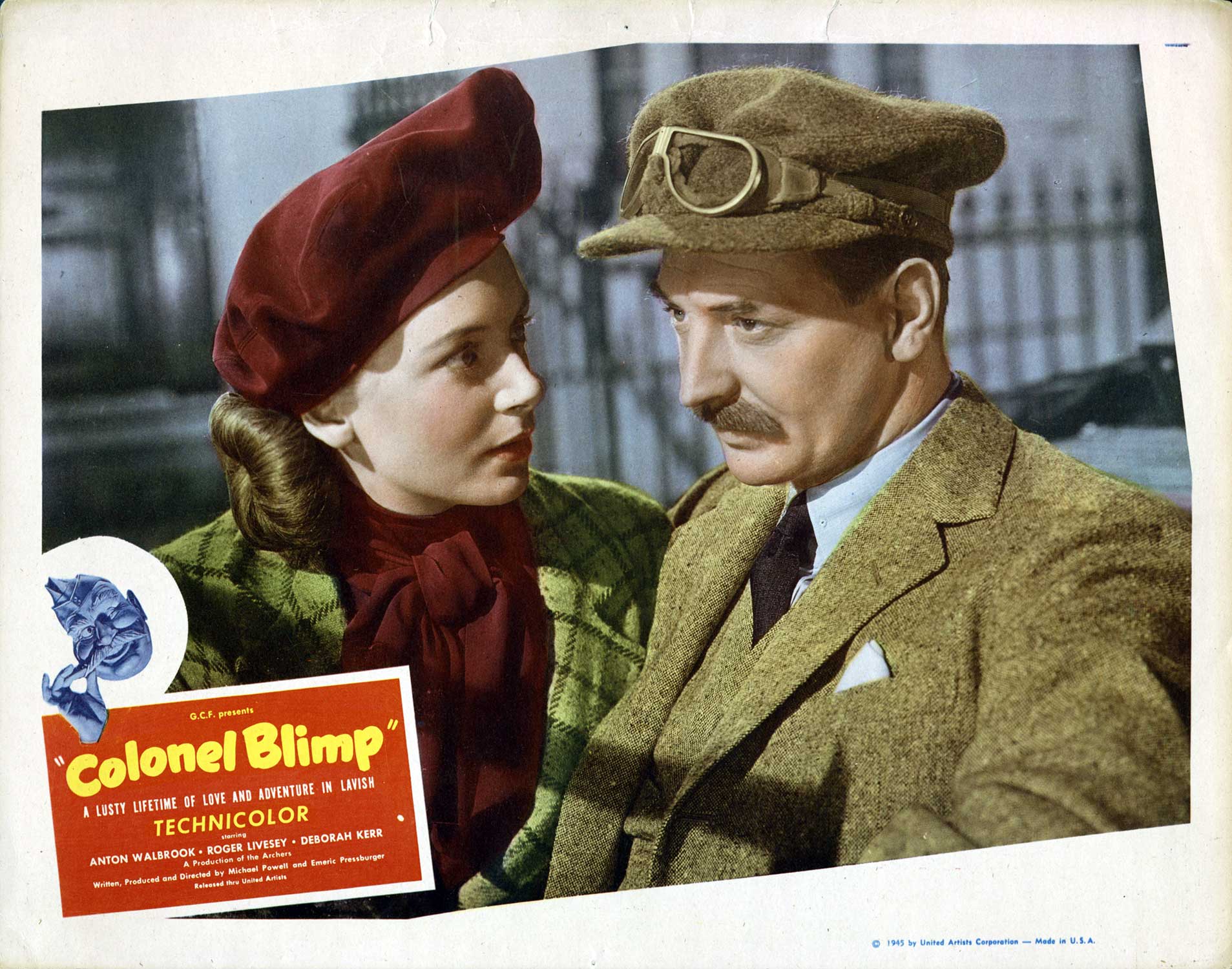War Starts at Midnight!
Don’t be put off by the title. The Life and Death of Colonel Blimp (1943) is one of the finest British films ever made.
Based on the popular Colonel Blimp political cartoon that satirized Britain’s military establishment, Winston Churchill was so worried the film would send the wrong wartime message to British and American audiences he tried to stop it in mid-production.
Michael Powell and Emeric Pressburger, the film’s co-directors, had hoped to use Laurence Olivier in the title role of Clive Candy, but the Ministry of War refused to release Olivier from military duty. In his place, Powell and Pressburger chose Roger Livesey, who gives a remarkable performance that convincingly portrays Candy over a 40-year period encompassing three wars.
Churchill allowed the film to be released in Britain in July 1943, but held up its release to the U.S. until 1945. That version was 10 minutes shorter than the British version (153 minutes versus 163 minutes). After an unsuccessful run, the U.S. print was trimmed to 93 minutes and wasn’t seen uncut in either England or the United States until the 1970s.
While the controversy over the Blimp character is important for understanding the context of the movie, it’s the excellent performances, as well as the subtle direction and intelligent script by Powell and Pressburger, that make this a real standout. Here are some examples of the dialogue:
Hoppy: I was awfully sorry to hear about your leg. [Looks down] Jumping Jehosaphat! They’re both there!
Clive Candy: What the hell did you think I was standing on?
Hoppy: They told me in Bloemfontein that they cut off your left leg.
Clive Candy: [Examines leg] Can’t have, old boy. I’d have known about it.
Clive Candy: The Kaiser spoke — and the Prince of Wales spoke . . .
Edith Hunter: Spoke about what?
Clive Candy: Nobody could remember.
Clive Candy: Well sir, I have a friend . . .
Colonel Betteridge: Good. Not everybody can say that. Continue!
Clive Candy: I heard all that in the last war! They fought foul then — and who won it?
Theo Kretschmar-Schuldorff: I don’t think you won it. We lost it — but you lost something, too. You forgot to learn the moral. Because victory was yours, you failed to learn your lesson twenty years ago and now you have to pay the school fees again. Some of you will learn quicker than the others, some of you will never learn it — because you’ve been educated to be a gentleman and a sportsman, in peace and in war. But Clive! [tenderly] Dear old Clive — this is not a gentleman’s war. This time you’re fighting for your very existence against the most devilish idea ever created by a human brain — Nazism. And if you lose, there won’t be a return match next year. . . perhaps not even for a hundred years.
Clive Candy: War starts at midnight!
Filmed in London and the surrounding countryside during the Blitz, this is an epic film. It’s epic not just in its physical and temporal scale, but also in its ambitious themes. The story is an elegy on friendship and divided loyalties, on lost opportunities and an unwillingness to adapt.
Unlike the blustery and bullheaded Blimp of the political cartoon, this Blimp is sympathetic. At heart, he’s a good man who can admit his mistakes. Because he’s entirely human, and not a cardboard figure, the criticism of Churchill’s military rings truer that it might have otherwise.
The Life and Death of Colonel Blimp
(1943; directed by Michael Powell and Emeric Pressburger)
The Criterion Collection (DVD)
Monday, September 16 at 9:00 a.m. eastern on Turner Classic Movies
Reviews